The Importance of Book Title
Some writers and authors believe writing query letters is harder than writing the book itself. For me, choosing a title for a manuscript is even harder than both!
My meanderings on the book titles started while watching Malcolm Gladwell’s writing course in Masterclass. Gladwell said he spent an enormous amount of time on finding a title, and sometimes he happened to think of the title first and then write the book. He advised thinking of the title as an advertisement. In my opinion, two of his books (Outliers and Blink) have fantastic titles which frame the entire book’s content in a single word.
Some months later, by chance, I watched Graham Norton’s talk show, talking with Morgan Freeman, discussing why Shawshank Redemption didn’t win many awards, in spite of its marvelous story. Freeman believed the reason was in the movie’s title! People could not remember the title, the word of mouth didn’t form, and the box office wasn’t good!
Having said this, I should note that some authors argue that a good title is unnecessary if the book is well-written. This statement can neither be proved nor rejected. We don’t have the sale record of one book with a good title and a bad title!
As a reader, I happen to pick up books merely based on their title, and, also, there were books that I admire because, in the end, I have an aha-moment to realize why the author picked that title. You could say when the author invested thinking on the title and when the titles were chosen with less attention.
As a writer or an author, it is your choice to go on the difficult road or not. If yes, welcome to the club of confusion!
I looked at many titles (both kidlit and adult), fiction, and non-fiction. Only titles. I wanted to observe which titles intrigue me, as a reader, to read them. Next, I tried to understand if there is a pattern behind those that attracted me and those which didn’t. Below is the summary of my observation.
Not-appetizing Titles
* Too long to remember: This caught my attention when I noticed that my four-year-old son shortens some titles! When he cannot remember the original sentence-size title, he uses the book’s content to refer to the book; my “body” book or “swimming” book.
* Space-waster: Many titles, especially picture books, are filled with space-waster words. By space-waster I mean the words that waste the chance in grabbing the reader’s attention. These words—nouns or adjectives—are either obvious or too over-used that they convey no special meaning. Here are some examples:
First, this title doesn’t tell something new to the reader! The reader already picked up the book to find out “how Y happened”. The second space-waster is “the story of”; of course, it is the story of something. What else did you expect? Manual of washing machine?!
Some titles waste the chance because they explain what the cover designer already told the reader; To avoid referring to an existing title, I made up this one, just for instance:
and on the cover, you see two animals on a farm!
* Imperative titles:
Needless to explain! If I were a child, I would never ever read a book that right on its title tells me what to do.
* Ending giveaway:
I read this sentence somewhere: “The title should imply the story, not tell the story”. Unfortunately, I cannot remember the resource. Otherwise, I would give the credit to it. Because this simple advice made me rethink of most of my manuscript’s titles. They gave away the story right in the title! This is not only me! There are some published books in which you see the ending or the story’s message on the cover! I give you an example (I made this up because I avoid referring to any book in a negative way): throughout the story, the Protagonist learns to trust herself and guess what the title is? “Trust”!
Easy to spot! Hard to resolve the mistake! Most of those titles came from my first inspiration or from the time I was so immersed in the story world that I didn’t notice how clearly the title tells the story! Now, most of my manuscripts have no title!
Intriguing Picture Book Titles
Inciting Event in the title
The biggest advantage of embedding the Inciting Event in the title is that immediately, the reader asks “what happens next?”.
In The Day The Crayons Quit Hardcover (2013), by Drew Daywalt, merely by looking at the title you’ll ask what happened on tha t day? Why did the crayons quit? Will they return (Story Question)? Why did they quit? And many more questions.
t day? Why did the crayons quit? Will they return (Story Question)? Why did they quit? And many more questions.
Or, consider Blackout (2011), by John Rocco. We, readers, are told even from the first page that in this story blackout matters. Wouldn’t you ask what happened during the blackout? Why would the blackout matter to the Protagonist? Was he/she afraid of darkness? etc.
Describe the Protagonist
Let’s discuss this title The Watcher: Jane Goodall’s Life with the Chimps (2011) by Jeanette Winter. How beautifully a single word described the Protagonist of the story. 
Compare “The Watcher” with some hypothetical titles like “How Jane Goodall lived with chimps”, “The girl who liked chimps”, “How Goodall studied chimps”, etc. Do you see the difference? Finding one noun that tells a lot about a character is such a marvelous achievement.
Or, the title of Ode to an Onion: Pablo Neruda and His Muse (2018) by Alexandria Giardino is the exact title of one of Neruda’s p oems.
oems.
A question in Title
Consider this title Have You Seen Gordon? (2021) By Adam Epstein. What comes to your mind, only by reading the title? How is Gordon? Was he lost? If so, why? What has happened?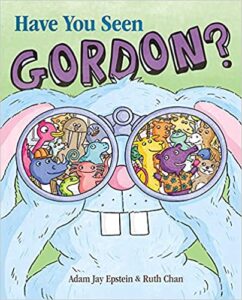
A simple 4-word title sparks endless questions in the reader’s mind!
Thanks to Laura Smith for suggesting this item and providing an example.
Juxtaposition
Malcolm Gladwell in his writing course said that he listed his favorite book titles. Most of the titles consisted of only two words, contradicted each other. He gave Silent Spring (1962) by Rachel Carson (it is non-fiction). The juxtaposition is here: when spring comes, you hear birds. Silent Spring signaled an alarm to the reader that something was wrong.
Recalling the titles I liked, I remembered The War That Saved My Life (2016), by Kimberly Brubaker Bradley (a middle-grade novel). I picked up this book merely because of its title; war means death and devastation. How could it be lifesaving? I didn’t know this book was a Newbery Honor book or a bestseller. Only the question that title conjured in my brain dragged me into the story, and after that, wonderful storytelling pinned me to the pages. I read the next book because of Kimberly’s storytelling. Having said that, the title of the next book is worth pondering: War I Finally Won (2017). Do you see the juxtaposition? Who has ever won a war? War has no winner!
devastation. How could it be lifesaving? I didn’t know this book was a Newbery Honor book or a bestseller. Only the question that title conjured in my brain dragged me into the story, and after that, wonderful storytelling pinned me to the pages. I read the next book because of Kimberly’s storytelling. Having said that, the title of the next book is worth pondering: War I Finally Won (2017). Do you see the juxtaposition? Who has ever won a war? War has no winner!
I searched for juxtaposition titles in picture books and I found Four Feet, Two Sandals (2007) by Karen Lynn Williams.  It is a wonderful story, by the way. If you know another picture book title for this category, could you please let me know in the comments?
It is a wonderful story, by the way. If you know another picture book title for this category, could you please let me know in the comments?
Personification
Personification, an invaluable poetic device, connects easily with young children. Consider, for instance, The Ocean Calls: A Haenyeo Mermaid Story (2020) by Tina Cho. However, obviously, it works perfectly only when related to the book’s theme.
Simile
The simile is another tool in our toolkit. For instance, ponder how much I Talk Like a River (2020) by Jordan Scott gently brings the reader to the world of a child with difficulty in talking.
A caveat here is that to make a simile you need to use “as” or “like”, and this makes the title long. So, other words in the sentences should be simple to pronounce and short.
Hint: I was wondering if a metaphor appears in the picture book title! [Reminder: simile vs. metaphor: Life is like a box of chocolates. (Simile) My life is an open book. (Metaphor)]. I assume a metaphor cannot make a good title because of its complexity for a young child.
Alliteration & Rhyme
Playing with words can make good titles. Remember Flight for Freedom: The Wetzel Family’s Daring Escape from East Germany (2020) by Kristen Fulton for its alliteration.
And, an example of rhyme is Cubs in the Tub (2020), by Candace Fleming.
Another example is Tofu Takes Time (2022) by Helen H. Wu. 
Quote Title
One more option that we have is selecting one sentence from the book. Thanks to Stephen Kosnar for suggesting this item and providing examples.
The title of We Are in a Book! (2010) by Mo Willems comes from the moment that the characters realize they are in a book!
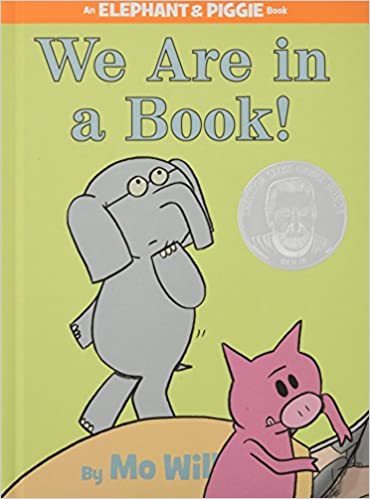
Or, Oh Look, a Cake! (2021) by J.C. McKee.

Unfinished Sentence
Nothing intrigues our attention more than an incomplete sentence. This is one of the well-known writing techniques to encourage the reader to turn the page. The same is valid for the book title.
For example, what is your brain reaction when you see this book title: Justice Is… (2022) by Preet Bharara. You want to pick up the book and read it, Don’t you?
Suspenseful title
One way to grab the reader’s attention is suspense, especially right on the book cover. Oh, No! (2018) by Candace Fleming is a good example.

Go back to Picture Book Pedia page.
I have ongoing research and brainstorming for my manuscripts titles. If I find anything new, I will add it to this post. If you have an idea, please let me know in the comments. Your help may rescue a title-less manuscript!
Published on 28.08.2021. Last update: 20.01.2022
At the beginning of each quarter, I publish a newsletter. If you haven’t subscribed so far and you’d like to receive it, please subscribe The form you have selected does not exist.

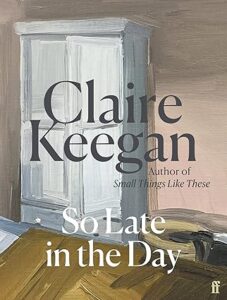
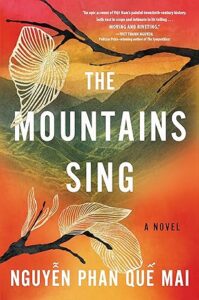
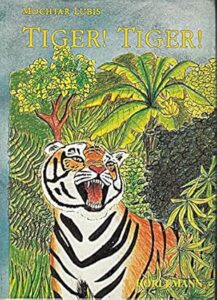

Thanks for this informative post, Nakia. I enjoyed the read and learned something too.
I agree on the importance of titles. Some in my book club disagreed. An adult title we discussed is called THE BLUE SPOOL OF THREAD. I expectef this phrase to appear more than once, but I only found it one time. We guessed the author imagined readers would grasp the significance, but I wanted more. New fav MG book is Squint. Perfectly named! What confused me about a mystery was about a hotel starting with a B and the author’s name also starts with a B. I have to think twice to recall the title correctly…
Thank you for this awesome tutorial on titles, Nakisa! I agree with you that a strong title will spark interest in a book. The trick is to find a title that raises questions, not summarizes the book. I thought a title was supposed to be a summary! 🙁
An alternate description for the “Juxtaposition” category would be ” Twist on Expectations”. I came across this title in the Rights Reports: “Santa Has to Go”. (PB)
Another category is the Question in a Title. There’s “Have You Seen Gordon?” By Adam Epstein , or “What is Brown?” By Ron Grady ( PBs).
Thank you Laura for sharing your thoughts. I added a new category to the list—question in titles.
First I want to say I really enjoy your blog posts and I always learn something. I think titles are really important. I regularly buy books based purely on the title. My most recent is an example of alliteration and it was a genius title. “Battle of the Butts: The science behind animal behinds”. Luckily the writing is excellent too.